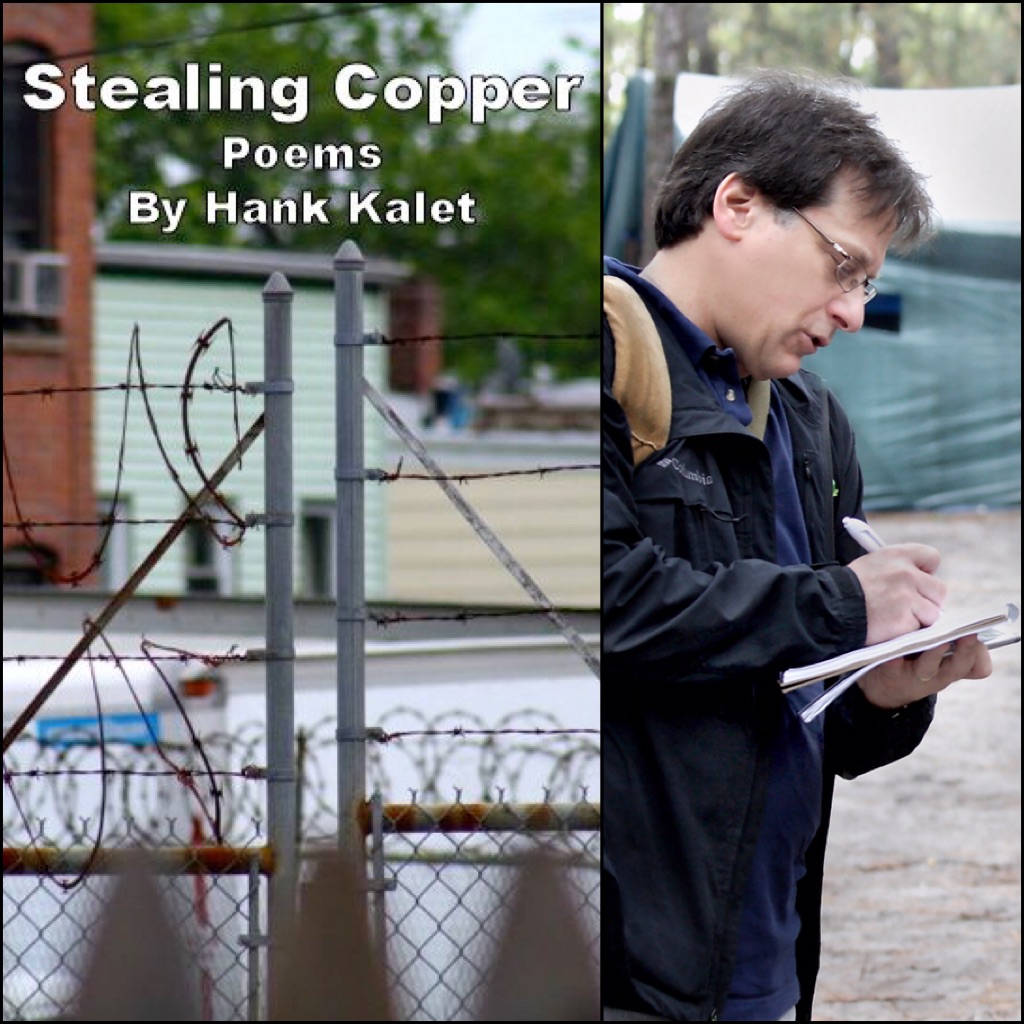Stealing Copper by Hank Kalet
$14.49
Working within the tradition of such documentarian poets as Rukeyser and Reznikoff, Hank Kalet’s poems render with great sensitivity and insight both the world as we know it and the cultural traditions that inform it. The poems of Stealing Copper are often poems of a particular place and a particular people—the contemporary fraying urban or suburban landscape—and in this way, they bring to mind the kind of rare and authentic tender regard for the outsider that we find in the poetry of James Wright and the fierce political and economic critique we admire in Phil Levine. Kalet’s exquisite empathy and fine imagistic detail conjure for his readers characters who seem more likely to have appeared in a police report or those, who might seem, if not for his careful attention, too insignificant to be recorded at all.
–Kathleen Graber, author of The Eternal City, a National Book Award nominee
At his best, as in “Waiting for the Knuckleball to Speak,” Kalet’s poems dance through the air unpredictably, with buoyant wit, irony, and grace, and then they land–while seeming to defy it—with tremendous gravity and humanity. While the world and lives he so carefully observes are familiar to most of us, he awakens in us the ability to see them anew, and the poems, in some sense, issue a kind of gentle moral challenge to keep awake forever to the world around us. Oh, and they’re also a lot of fun to read.
–David Daniel, author of Seven-Star Bird
Hank Kalet’s chapbook “Stealing Copper” guides the uninitiated reader through America’s blighted urban landscapes with a precision, clarity and economy of language that immediately engages all the senses. Detroit, Camden and Newark descend from mere metaphor into places where we see “Decay as cliché’.” Baseball, unemployment and despair create poems that are as American as a failed attempt at stealing home with two outs in the bottom of the ninth. Yet, there are delightful descriptions of the obvious like gulls, the “Winged pick-pockets circling above.” These poems move to the vibe of punk guitars and Philly bars where patrons still smoke. It’s all here from Japanese monster movies aired on late 1960s’ television to Web sites instructing you how to safely break up a dog fight. These poems, like copper wiring, lyrically reveal the overlooked infrastructure of a country desperately in need of a renewed source of energy and hope.
–Charles H. Johnson, award-winning poet, Dodge Foundation poet in the schools and author of three collections, the latest Smoke Signals
Rating: ***** [5 of 5 Stars!]






Reviews
There are no reviews yet.